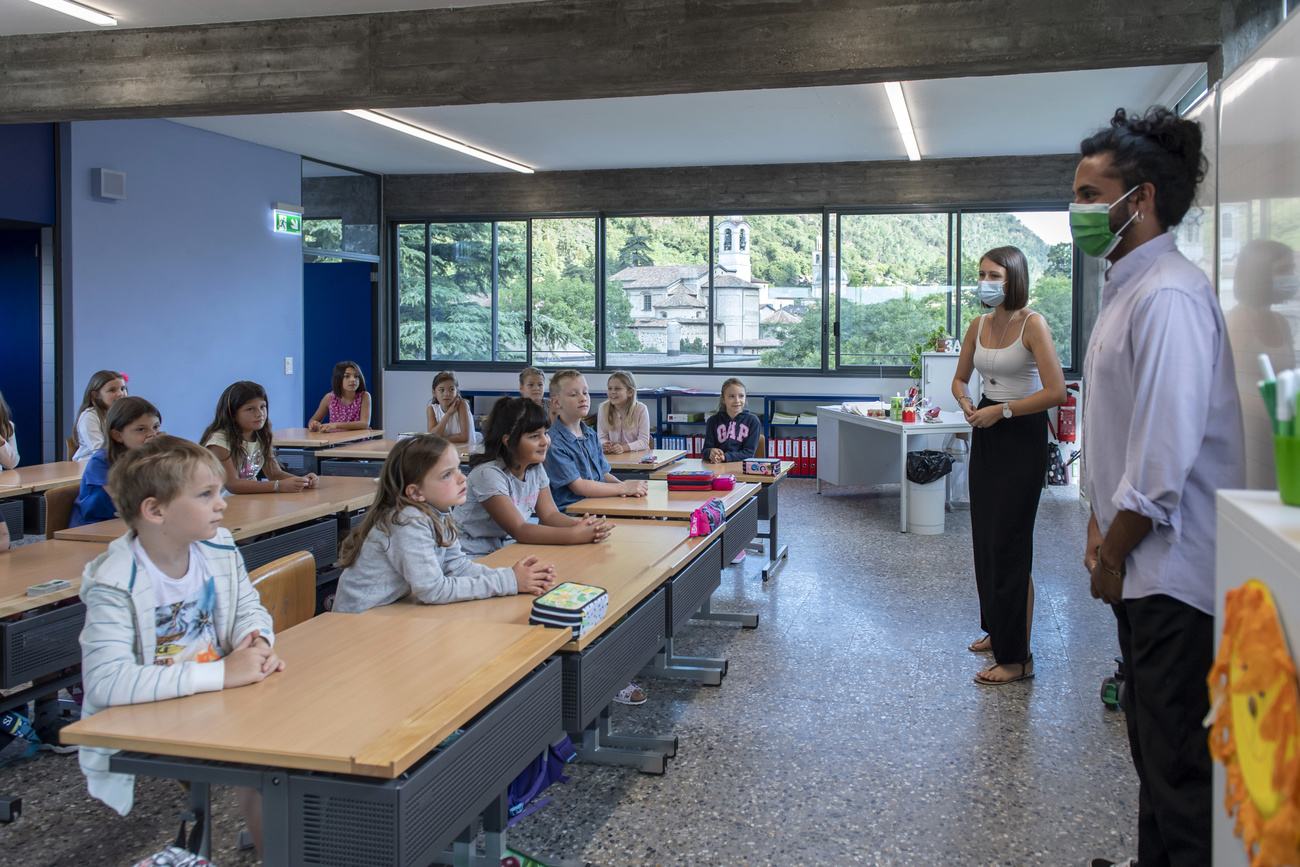
On the up: second-gen migrants in Switzerland surpass their parents educationally

Migrant children generally achieve a higher level of education than their parents, a study has found. But there are differences: children from Germany are more likely to go to university than their Balkan peers.
The study, published in the latest edition of the journal Social Change in SwitzerlandExternal link, compared the education level of migrant parents with that of their children (second-generation migrants or “secondos” as they are called in Switzerland) who had been through the Swiss school system.
Taking data from 24,000 parent-child couples from the nine largest migrant nationalities (Germany, France, Italy, Portugal, Spain, Turkey, Serbia, Macedonia and Kosovo) University of Geneva demographer Philippe Wanner found that intergenerational mobility was “much more likely to be upwards than downwards”.
For example, among the secondos whose parents had left school at 15 or 16 (so with secondary level I education), almost 60% went a step further and continued their education until 18 or 19 (secondary level II). This means they generally did an apprenticeship, which is the most popular route for school leavers in Switzerland, or went to a high school that prepares for university. In 32% of the cases, the child achieved university-level education.
Wanner also found that upward educational mobility was just as high among migrant families as among native families from the same social class.
This was despite educational barriers such as discrimination or language difficulties, the study noted.
As possible explanations, Wanner cited the high educational aspirations of some migrant children and the fact that “migrant families have a more inclusive education system in Switzerland than in their respective countries of origin”.
Differences between countries of origin
However, the data showed that the proportion of children with a university-level qualification varied by nationality.
So while 54% of second-gen migrants from Germany gained a degree or equivalent, only 20% of those from Kosovo achieved the same.
Wanner told SWI swissinfo.ch that while the study did not offer detailed explanations as to the differences, there were some factors that could be taken into account.
“We could speculate according to the length of time they have been in Switzerland – the Balkan communities arrived more recently – so they do not yet have all the tools, particularly linguistic ones, to guarantee their children’s success in school,” he said. Another point is “possible discrimination in the school environment”.
Every country claims to have an education system that offers equal educational opportunities, Wanner added. And this would indeed appear to be the case in Switzerland.
But the differences between the counties of origin would, he said, require some further thought on how best to ensure full equality for migrant children in the education system.
Wider problem
The difficulties faced by some migrant children in Switzerland have been well documented over the years, with calls for more early years integration or better support for migrant teens.
The OECD has also flagged upExternal link how socio-economic status in particular strongly influences educational outcomes in Switzerland. However, its 2018 report into equity in education found that people from disadvantaged groups – which can include some migrant groups – in Switzerland still had more opportunities for upward educational mobility than in many other OECD countries. But it warned that foreign-born adults often had a harder time finding jobs that locally-born university-educated people.
At around 25%, Switzerland has one of the highest proportions of foreign residents worldwide.

More
Educational inequalities highlighted by Covid-19 pandemic

In compliance with the JTI standards
More: SWI swissinfo.ch certified by the Journalism Trust Initiative































You can find an overview of ongoing debates with our journalists here . Please join us!
If you want to start a conversation about a topic raised in this article or want to report factual errors, email us at english@swissinfo.ch.